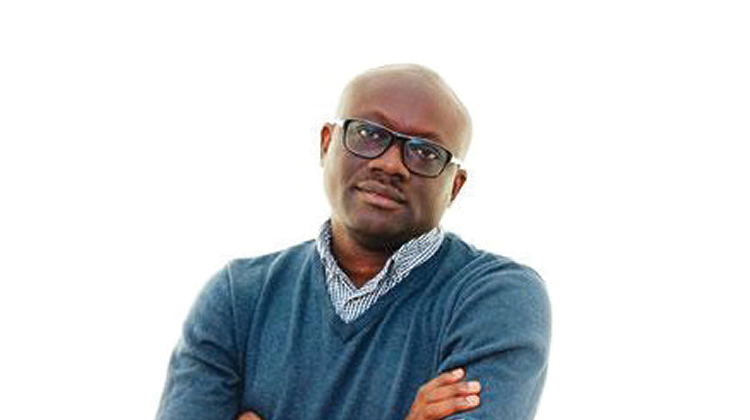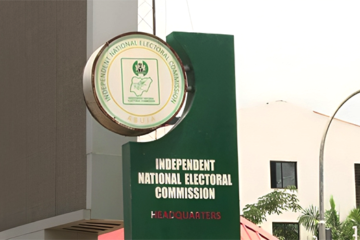The menace of the internet mob [OPINION]

Simon Kolawole
By Simon Kolawole
While preparing to write this article, I bounced the idea off the missus. She asked me to watch ‘Accused’, a Netflix thriller. (Warning: movie spoiler ahead, proceed with caution.) The lead character is Harri (Chaneil Kular), who suddenly finds himself as public enemy after a London train bombing. When police release the image of the suspect, someone posts that it looks like Harri. His pictures, phone number and other details are then shared on social media, and people are encouraged to lynch him. His phone rings non-stop as the internet mobsters hound him. By the time the drama is over, the person who first posted that Harri looks like the suspect has quietly deleted the post.
You see, social media has become the death of many people, metaphorically and literally. Many have been tried, condemned and executed on social media based on misinformation and disinformation. Conversely, many have also become brain-dead, willingly and wilfully spreading misinformation and disinformation for the sake of clout-chasing. Misinformation is mostly a mistake — usually borne out of ignorance, poor intellect or laziness to fact-check. Disinformation is deliberate, borne out of pure mischief or vendetta, and often useful for propaganda. The mobsters (I fondly call them “internet thugs”) are not governed by any rules. It is the survival of the loudest, the rudest and the vilest.
Unless you are a victim of mob malignment, you would never understand. It is always sweet when you are the one dishing out the dirt, making unfounded allegations, demonising people, distributing insults or rupturing reputations with vicious rumours. It is exciting to be the enabler and amplifier. But when the boot is on the other foot, reality dawns on you. I was told that a former Nigerian president used to issue queries to ministers and other appointees based on salacious reports published on them by a website. When the website fabricated falsehood against him and his family, he was so pained he stopped the practice. It always looks cool until you become the victim!
While I am very worried because people’s lives and livelihoods are daily endangered by the mindless mob, I am further concerned that supposedly intelligent and enlightened people are pandering to these thugs. The mainstreaming of mischief, misinformation and disinformation — primarily because the majority of decent people have, for their own sanity and safety, yielded the space to the boisterous charlatans — is a major threat to intelligent public discourse in Nigeria. Those who have something sensible to say either have to dare the mob or use a less visible alternative platform. Unfortunately, any society that does not place a premium on knowledge and rigour is doomed.
I’ve always loved this quote by Prof Wale Adebanwi, Presidential Penn Compact Professor of Africana Studies at the University of Pennsylvania: “It is treasonable to be reasonable in an unreasonable society.” As I have often said, the biggest threat to free speech today is not from the government or its agents. It is from the internet mob. It is bad enough that the mob controls the narrative on social media, but it is even worse that you are not allowed to express an alternative opinion. The mob will come ferociously for you if you dare to be reasonable. This has forced many otherwise intelligent people to continue to pander to the mob because they do not want to be “dragged” on social media.
I sometimes ask: why do people pander to the mob by standing truth on its head, propagating falsehood and ignoring obvious facts and sound logic? One, the crave for social media validation, relevance and popularity is a major motive and motivation. Two, there is a motley crowd of wannabe influencers or activists who seek to be noticed by the loudness of their voices and the vileness of their posts. It is a race to the bottom: who can post the basest of things? Three, monetisation of contents is a perverse incentive to gain engagement through likes and shares. Four, social media is home to recklessness without commensurate consequences. The list is by no means exhaustive.
In focus group discussions on the menace of social media, people often ask me how I “cope” with attacks. Some of these attacks have little to do with me — they are usually because of stories published by TheCable, the online newspaper I founded in 2014. Some of these attackers are daft enough to think I write, edit and publish every article in TheCable, a media outfit that has approximately 50 employees, including eight editors. Some attacks are reactions to my THISDAY column. Certain characters want me to help them amplify their lies and biases, endorse their choices and toe their paths. They come for me because I refuse to be led by the nose. I can live with that.
In truth, I’ve had my fair share of abuse — dating back to 2004 when I started listing my phone number in this column. I’m used to receiving all manner of text messages, so I knew how vile and unreasonable some people could be long before the explosion of social media. For instance, when I took up the cause of Peter Obi’s 2003 governorship election petition in Anambra state, I regularly received insults and death threats. Some threatened to kidnap my family. Over the years, I have been called “Fulani slave” and “Igbo hater”, among other compliments. I admit that I am fully vaccinated against the silliness, which probably gives me an undue advantage over newcomers to the game.
For me, coping with attacks is smooth and easy — I did not set out to be an internet sensation, so I have never assessed my progress in life by the number of likes, comments and reposts. That settles it for me. If I want to have a million followers, I know what to do. I know what to post to please the mob. I would play to the gallery, ignore glaring facts, cook up fiction or half-truth, garnish it with ethnic, religious or political prejudice (while pretending that is not the case), and position myself as the principled advocate of truth and justice. Grandstanding always works. But I would have to spit at the values I have cherished all my adult life just because I want to follow the crowd. God forbid.
Sadly, it is difficult to have a decent conversation because of these miscreants. The typical response of the mob to a well-reasoned argument is that “you have been bribed”. Many people have developed mental issues, such as anxiety, because of these attacks. I have friends who would want to engage in public debates but are scared. They think it is not worth the stress. For example, how do you debate the Nigerian economy with someone who thinks “foreign reserves” and “foreign savings” are the same thing and is not willing to learn? How do you argue with someone who does not know the difference between presidential and parliamentary systems and does not intend to find out?
The influencers I pity the most are those who have allowed themselves to be boxed into a corner by the mob. They are practically in jail. When they see what is red but their crowd is saying it is yellow, they have to say yellow, lest they be mobbed. They are not permitted to use their brains. They take their cues from the mob. The tail is now wagging the dog. They have become hostages to the same mob that lionised and propped them up with over-spiced comments, likes, shares and cluster follows. I once privately challenged one of them for posting clear misinformation and he retorted: “You want them to drag me?” Pandering to the mobsters must be a very awkward place to be.
I also think many people take themselves too seriously on social media. They talk so magisterially you would think they have invented something. In their echo chamber, their praise singers incestuously make them think they are saying something profound. Some demagogues thus think they are geniuses because of the tosh they tweet. Their praise singers massage their egos, giving them all the verve to continue sowing stupidity. The little rascal in me is always happy whenever their thugs turn against them for trying to post something sensible. They deserve each other. Some are also clearly mentally disturbed, frustrated or having issues at home. They vent, cowardly, on social media.
For emphasis, this is not an endorsement of legislative moves to gag social media. I am 100 percent for free speech. I am 100 percent for alternative opinions. I am 100 percent for holding people inside and outside of government accountable. I do not support any attempt to gag critics or criminalise dissent. What I oppose, and will continue to oppose, is people taking licence for liberty. Nobody has the right to propagate falsehood and mischief under the guise of free speech. Nobody has the right to bully and defame others for not being in their camp. Most of the people hiding under free speech to terrorise others have no respect for democracy. Yet, they masquerade as lovers of democracy.
Let me also be clear: if you think this is a sweeping negative verdict on the entire social media ecosystem, then you are not getting me. There are many educative handles and thousands of decent Nigerians on that street from whom I love to learn. I am very happy with that. There are great creative contents that make me laugh all the time. No matter the abuse and misuse of these apps, they still offer more joy than pain, in my opinion. As my friend, Shina Badaru, publisher of Technology Times, would say, you can choose the contents you want. It is like the TV and the remote: if you don’t like what you are watching, you can change channels. Just stay your lane. It always works for me.
My worry is “the armpit of the internet”, as a friend calls it, where anything goes, where only the rules of the jungle apply. We need robust and diverse conversation. We need to disagree without being disagreeable. We need to learn from each other, even if our viewpoints, beliefs and positions are not similar. We do not need to reason alike, but we can afford to reason together. Being reasonable should not be treasonable. Nobody has to be vilified, demonised or defamed without any evidence of wrongdoing just because they see things differently. Let us stick to the facts and argue on the basis of sound logic. We surely need an ethical hijack of the social media for the good of our society.
Culled from TheCable











